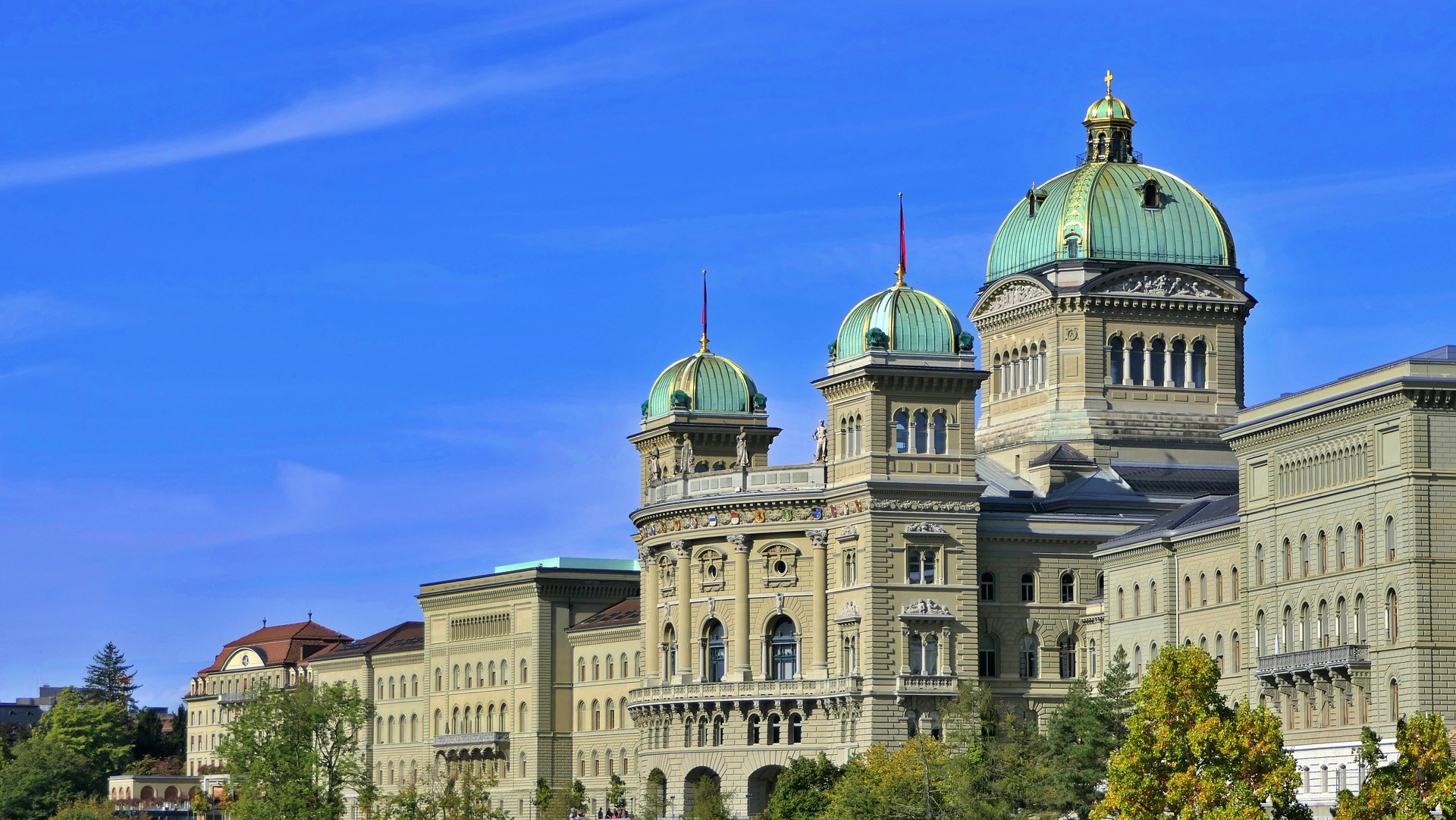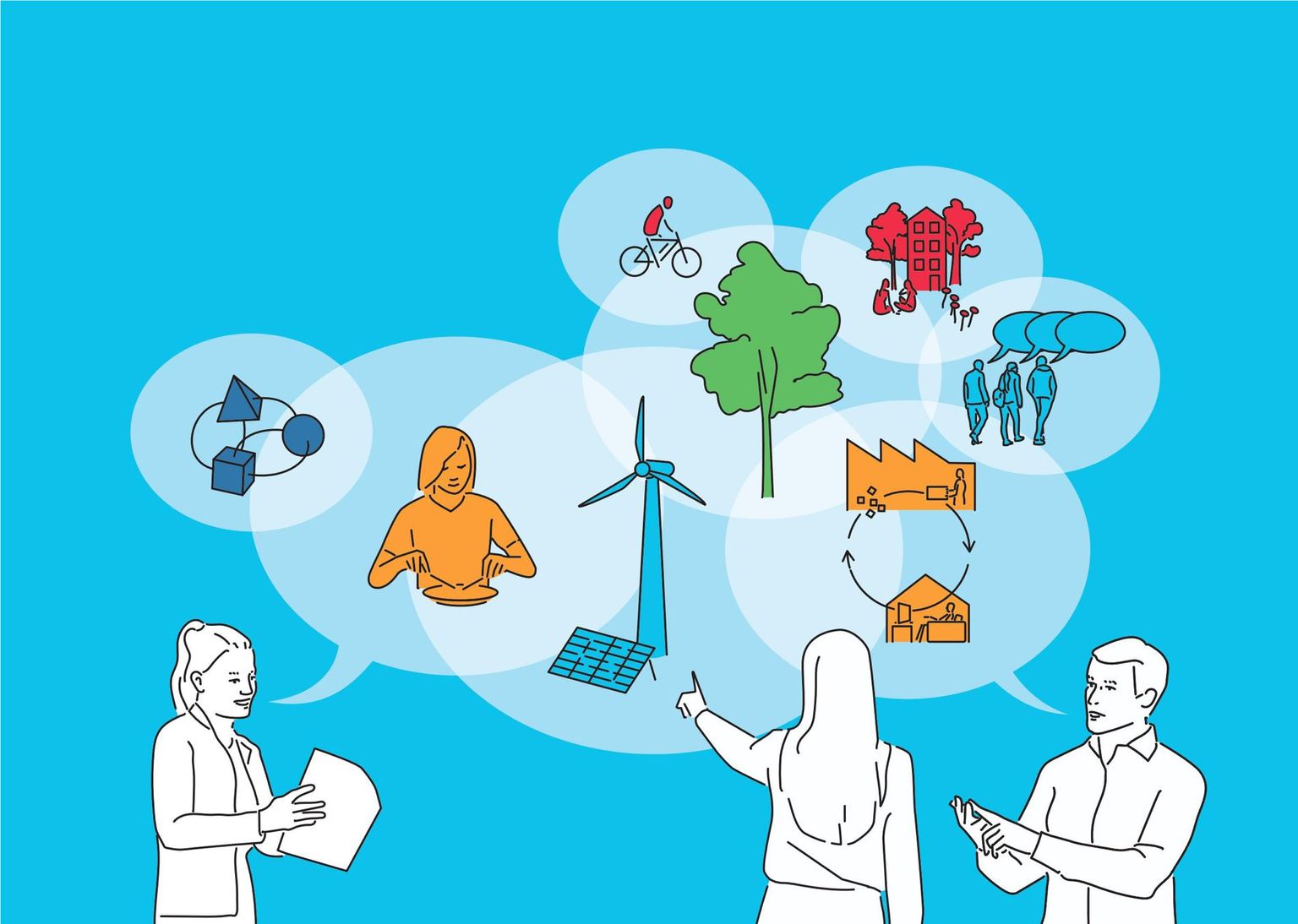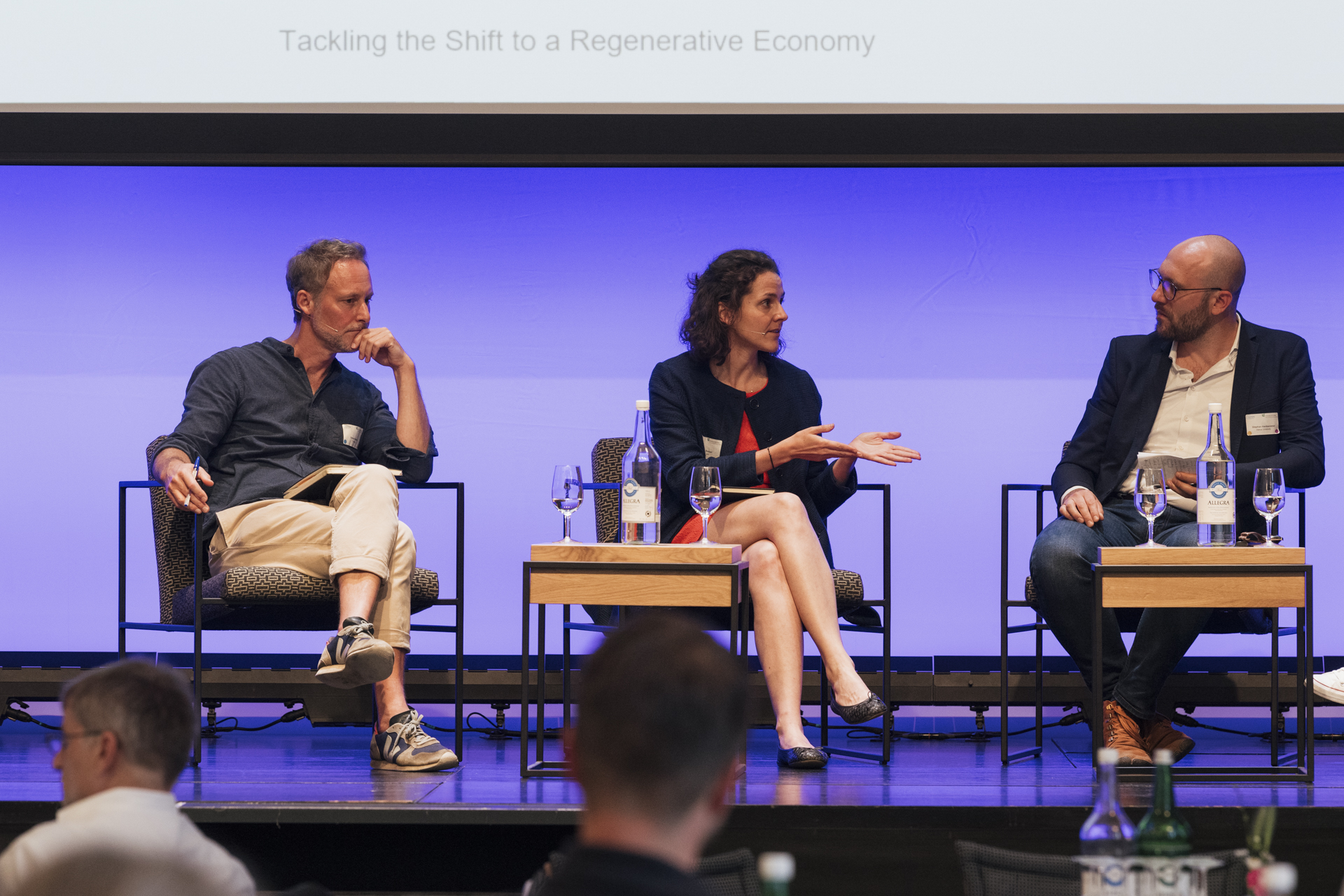Open Forum for a Strong Swiss Strategy on Sustainable Development 2021-2030
Global urgency requires Swiss leadership
Switzerland’s 2030 Sustainable Development Strategy is not ambitious enough
Around 60 organisations joined us for our Open Forum to strengthen Switzerland’s 2030 Sustainable Development strategy on January 20, 2021. We were very happy to see stakeholders from all sectors represented: economy, science, politics, public administration, culture and civil society including, for example, economiesuisse, the Swiss Academies, Umweltallianz and Plattform Agenda2030. The tenor of the discussion was very clear: The strategy presented in the consultation is not ambitious and concrete enough to induce change which according to science, is urgently needed. SDSN Switzerland Co-lead Océane Dayer underlined in her welcoming address: «The Swiss Sustainable Development Strategy 2030 is Switzerland’s one-shot to reach the UN SDGs ».
In general, the presented strategy reflects a very holistic understanding of Sustainable Development and provides highly valuable guiding principles. However, anyone involved in processes around past sustainable development strategies notices: There is not much new at present to induce the needed change. The strategy is based on mainly pre-existing policies and underlying strategies and remains vague beyond that. We need to question ourselves: Can such a strategy lead to the large societal transformation needed? Does it allow us to move fast enough aligned with all other countries to avoid environmental tipping points leading us into a disaster? Does it allow us to leave no one behind?
What is missing in the 2030 strategy?
Switzerland’s cross-border responsibility
-
Reflected in our negative spill-over.
-
Our major leverage on the SDGs is our global impact it is therefore Switzerland’s responsibility to show leadership here.
-
What is missing is the promotion of sufficiency as it is highly questionable also from a scientific point of view how to respect planetary boundaries in a society like ours without sufficiency.
-
Also missing are ground-breaking pathways towards a sustainable financial system plus the future of Switzerland’s Financial Centre as a major contributor to our national well-being
Improving and embedding the system to monitor progress towards the 2030 Agenda
-
Recommendation: including a mid-term review to reflect and if needed adjusting targets in an inclusive process or add interim targets to evaluate progress and give the opportunity to adjust strategic options.
A financial Plan
-
Recommendation: Ensuring with a financial plan that sufficient means for transformative change are provided.
-
Research for transformative change has to be financed (Sustainability Research, 2020)
-
In addition, transformative implementation projects need to be enabled and supported financially.
-
Therefore, we recommend federal coordinating bodies receive a budget to invest in holistic transformation.
Showing ways to overcome major blockages
-
Examples: Agricultural policy and “how to bridge the gap between ecological awareness and behavioural change”
-
The strategy could highlight the need for new democratic tools and social innovation to give greater weight to science-based targets in consensus-building.
No cherry-picking
-
SDGs must be addressed holistically.
-
It is astonishing that global health is not addressed as prime national interest during these times of the pandemic.
-
Moreover, the biodiversity on protected land is with 17 percent more or less half of what is currently pledged internationally by 50 countries to tackle biodiversity crisis.
-
Goal on inequality remains very vague compared to the SDG target
-
SDGs 9,14 are not addressed. SDG’s 16, 17 not really addressed too despite their relevance for Switzerland.
General recommendations
-
to further strengthen Swiss leadership and invest in this strategy. Moreover, according Swiss comparative advantage as a chance to tackle the current crisis and as a holistic response to the EU Green Deal and Biden’s 2 Trillion Climate Plan.
-
Concretize the integration of systemic drivers and relevant actors
-
include stakeholders in the development of the action plan.
We will stay in contact and continue working together as we see the need for a binding and inclusive strategy. A strategy paving the way for a joint Swiss action plan leading to the achievement of the UN SDGs as a fundamental basis for our future.
Presentations
https://youtu.be/Ur2JwWDH4Sc
Recommendations to strengthen Switzerland's 2030 Sustainable Development Strategy
by Carole Küng
Program
16:00 | Welcome & Introduction
-
Océane Dayer, Founder and Vice President Swiss Youth for Climate
16:10 | How to reach the SDGs in Switzerland: Eight steps for designing 2030 Agenda Strategies
-
Thomas Breu, Director Centre for Development and Environment (CDE), University of Bern, SDSN CH Leadership Council Member
16:20 | Recommendations to strengthen Switzerland's 2030 Sustainable Development Strategy
-
Carole Küng-Weber, Co-Director SDSN Switzerland
16:30 | Workshop & Discussion: Further developing key recommendations to strengthen the strategy together
-
Jorge Tamayo, Co-Director SDSN Switzerland
-
Introduction to workshop setting and table cloth on Mural
Our focus today is on responding to questions 3 and 4 in the consultations response form
(Question 3.: What is missing? and 4.: General comments)
-
Written inputs by participants followed by a discussion (D/E/F)
Please prepare your inputs in a written form.
17:15 | Wrap-up and Closure
-
Carole Küng-Weber, Co-Director SDSN Switzerland















